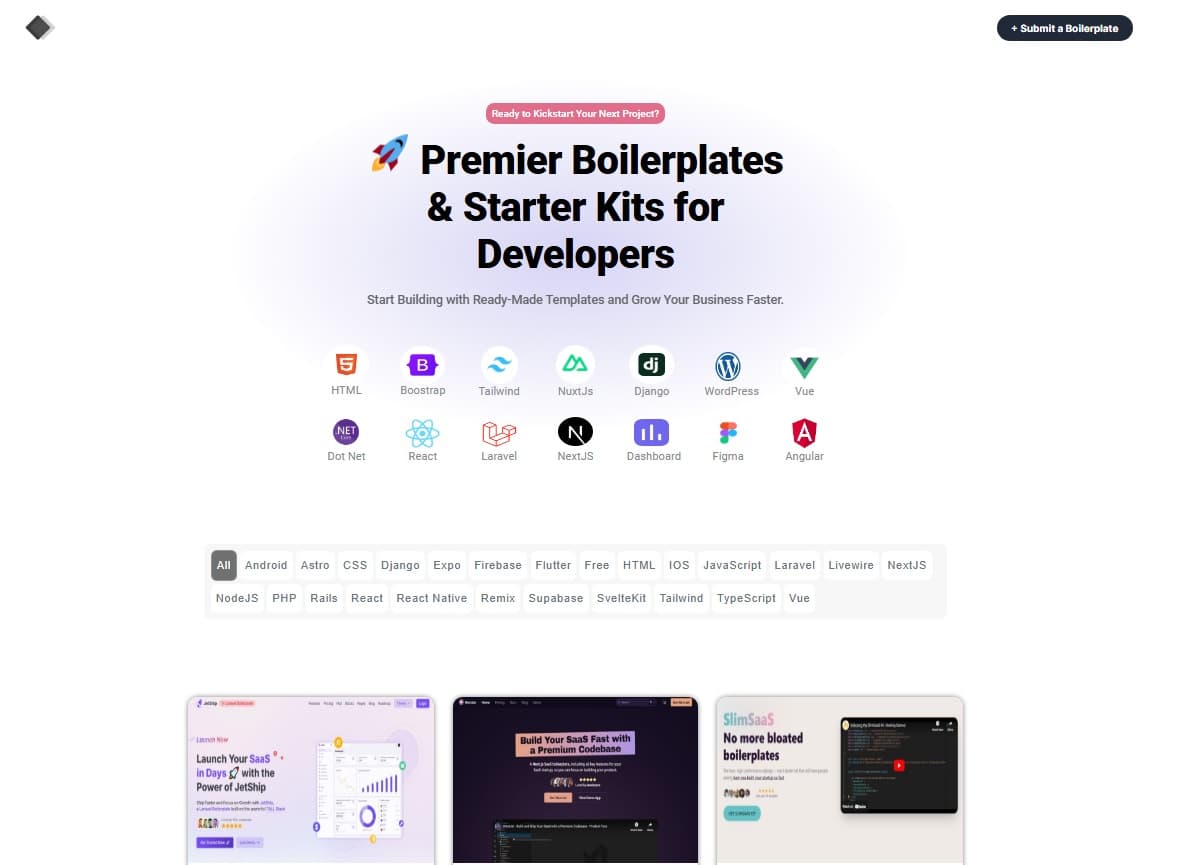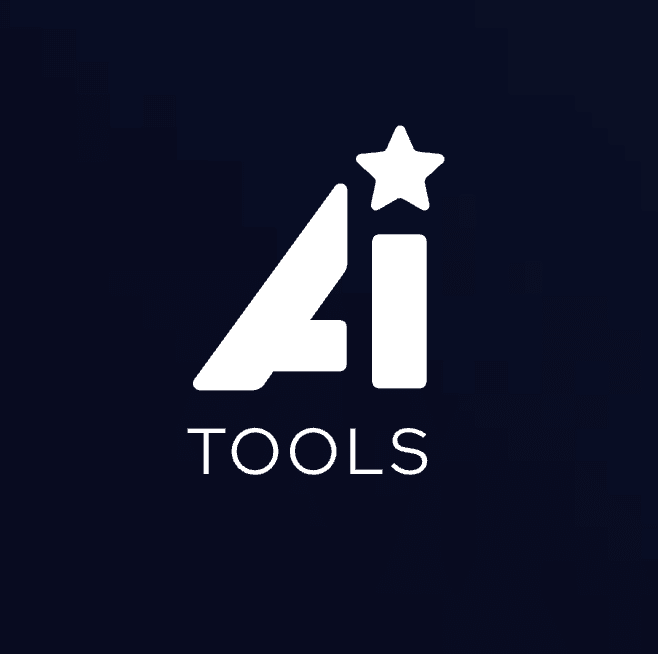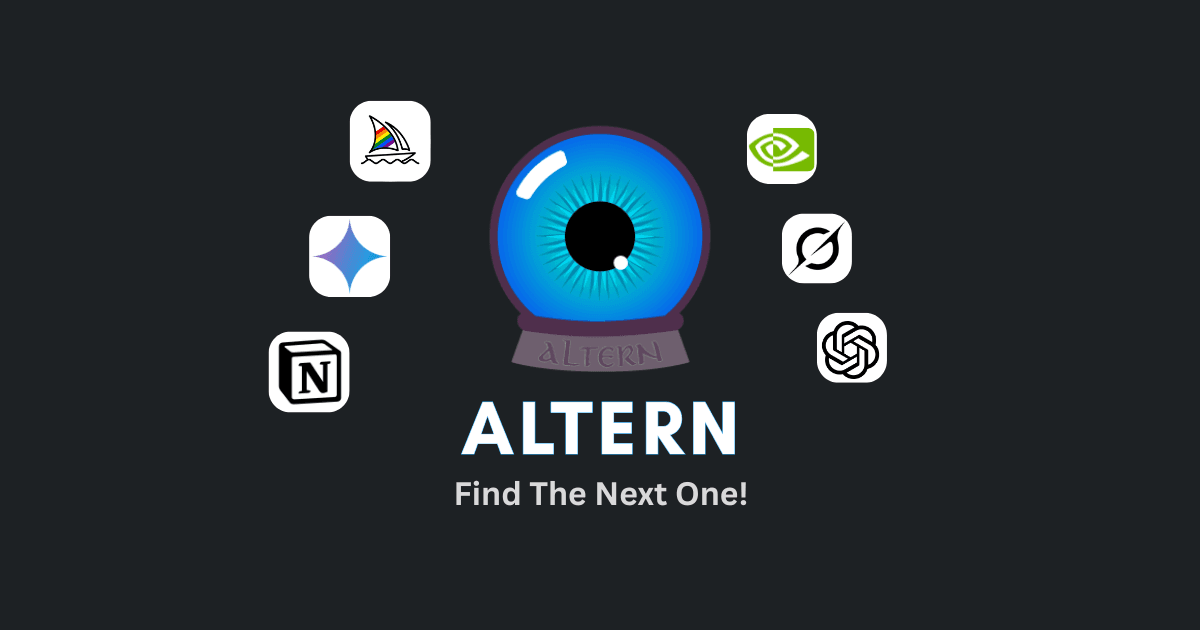AllBoilerPlates vs. Google's Structured Data Docs
AllBoilerPlates
Allboilerplates is a directory of starter kits that helps people find boilerplate code for their tech stack. Head on over to allboilerplates.com to find the perfect boilerplate for you!
Google's Structured Data Docs
Looking to implement structured data and don't know where to start? Google has excellent docs that explain what kind of structured data you need to provide to get certain types of search results. Bredcrumbs, articles, carousels, courses, reviews, FAQs, products, recipes and more - it's all covered there!
Reviews
Reviewed on 7/3/2024
Made by Jogi @jogicodes
Reviews
| Item | Votes | Upvote |
|---|---|---|
| Many Boilerplates | 1 | |
| User Submission | 1 | |
| All Tech Stacks | 1 | |
| Bringing order to chaos | 1 | |
| Indie Dev Owned And Operated | 1 | |
| Ranked by product quality | 1 | |
| Filterable by features | 1 | |
| Filterable by technologies used | 1 |
| Item | Votes | Upvote |
|---|---|---|
| There are too many boiler plates | 1 |
| Item | Votes | Upvote |
|---|---|---|
| No pros yet, would you like to add one? | ||
| Item | Votes | Upvote |
|---|---|---|
| No cons yet, would you like to add one? | ||
Frequently Asked Questions
AllBoilerPlates is specifically designed as a directory for boilerplate code across various tech stacks, making it a great resource for developers looking for starter kits. It offers a wide range of boilerplates, is user-submitted, and allows filtering by features and technologies. In contrast, Google's Structured Data Docs focus on providing comprehensive guidelines for implementing structured data to enhance search results. While both resources serve different purposes, AllBoilerPlates is better suited for finding boilerplate code, whereas Google's docs are essential for understanding structured data implementation.
AllBoilerPlates offers a user-friendly experience with its filterable features and a variety of boilerplates, making it easy for developers to find what they need quickly. However, Google's Structured Data Docs provide clear and structured information on implementing various types of structured data, which can also be user-friendly for those specifically looking to enhance their search results. Ultimately, the user-friendliness depends on the developer's needs: AllBoilerPlates for boilerplate code and Google's docs for structured data guidance.
AllBoilerPlates is a directory of starter kits that helps people find boilerplate code for their tech stack. It offers a wide range of boilerplates that can be filtered by features and technologies used. The platform is indie dev owned and operated, and it ranks products by quality.
Pros of AllBoilerPlates include: many boilerplates available, user submission, support for all tech stacks, bringing order to chaos, indie dev owned and operated, ranked by product quality, and filterable by features and technologies used. The main con is that there are too many boilerplates, which might be overwhelming for some users.
AllBoilerPlates was created by Jogi, known on social media as @jogicodes.
Google's Structured Data Docs provide comprehensive guidelines on how to implement structured data on your website. These docs cover various types of structured data, including breadcrumbs, articles, carousels, courses, reviews, FAQs, products, and recipes, helping you optimize your content for better search engine visibility.
Google's Structured Data Docs cover a wide range of topics including breadcrumbs, articles, carousels, courses, reviews, FAQs, products, and recipes. These guidelines help webmasters understand what kind of structured data is needed to achieve specific search results and improve their website's SEO.
Using Google's Structured Data Docs is beneficial for optimizing your website's content for search engines. By following these guidelines, you can enhance your site's visibility in search results, making it easier for users to find your content. Structured data can lead to rich results, which improve click-through rates and overall user engagement.
Google's Structured Data Docs help with SEO by providing guidelines on how to implement structured data that enhances search engine visibility. Properly structured data can result in rich snippets, which stand out in search results and can lead to higher click-through rates. This makes your content more accessible and attractive to users.





















